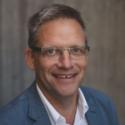2021 Leadership Foundations Network
- Image

The Apostle Paul invested time and energy into the development of Timothy, which set him up for a lifetime of service. We all need the same kind of investment.
The European Leadership Forum is focused on helping you grow and develop as a leader. The vision of the ELF’s Leadership Foundations Network is to establish some baseline understanding and skills and to set these in your own personal context and the context of the wider European mission. You will meet and develop relationships with other leaders across Europe who are at a similar stage and who share the same vision and convictions. You will receive input from some of the Forum’s best speakers alongside tailored individual mentoring.
Applicants should be those who are attending the Forum for the first time and want to see the Forum as part of their long-term personal leadership development plan. It is a one-year track only: as part of the Network, we will help you make decisions about how to make the most of what the Forum offers and direct you towards appropriate ongoing mentoring and training opportunities.
The following three elements are essential to this network strategy:
- INTRODUCTIONS TO NETWORKS FOR 2021
For those attending the Forum for the first time, there are an overwhelming number of networks you could be part of. We want to help you choose the right one that will help you develop as a leader in your next step. Over the course of the Forum we will be briefly introducing each Network so that you are able to make an informed and appropriate choice.
- NETWORK RELATIONSHIPS
It is crucial that we have times to get to know each other and pray together. This is an essential part of the track because it helps us understand the contexts in which we are ministering and establish friendships across Europe with those who are at a similar stage of leadership development. As we share and pray, we will gain a vital understanding of the breadth of Christian ministry that is being done across Europe.
- INDIVIDUAL MENTORING
The Leadership Foundations track includes a unique and important feature – a one-to-one mentoring session with one of the network leaders, which helps you tailor the Forum’s many opportunities to your own personal ministry context and development. These will take place over the course of the Forum.
Applicants should be those who are attending the Forum for the first time and want to see the Forum as part of their long-term personal leadership development plan. The Network is focused on helping participants grow and develop as leaders, showing them how to make the most of what the Forum offers, and directing them towards appropriate ongoing mentoring and training opportunities.
Network Leadership
Network Speakers
Ann Pritchard Blaser has led women through Bible Study Fellowship International for thirty years, teaching Scripture classes for women and training leadership groups. Her work now consists of mentoring and advising other women who are teaching and training leaders in Bible Study Fellowship. She… Read more
Lars Dahle is a theologian, educator, preacher, and apologist. Having a long previous experience in various academic leadership roles, he now works as Professor in Systematic Theology (with a speciality in Christian Apologetics) at NLA University… Read more
Stefan Gustavsson is a member of the European Leadership Forum Steering Committee. He is the director for Apologia – Centre for Christian Apologetics and makes his home in Stockholm. He was the founding general secretary for 16 years of the Swedish Evangelical Alliance. Stefan travels widely… Read more
Tony received his B.A. in Biblical Studies from Wheaton College and M.A. in New Testament Studies from Wheaton Graduate School. He has completed two years of doctoral studies in Paul’s Pastoral Leadership at the University of Aberdeen with Professor I.H. Marshall. He has worked for nearly 20… Read more
Greg Pritchard received his Ph.D. in Religion in Personality and Society at Northwestern University. He has taught graduate-level courses on apologetics, theology, history, leadership, the New Testament, ethics, and Christian Thought at American, European, and Asian institutions of higher… Read more
Michael Reeves is President and Professor of Theology at Union School of Theology in the UK. He is a Senior Fellow of Newton House, Oxford, and speaks and teaches regularly worldwide. Previously he has been Head of Theology for UCCF and an associate minister at All Souls Church, Langham Place,… Read more
Adrian Reynolds is Associate National Director for the Fellowship of Independent Evangelical Churches (FIEC) in the UK. The FIEC is a network of over 630 churches. Adrian has specific responsibility for developing new and existing leaders within the network and takes the lead in the provision of… Read more
Emanuel Tundrea completed his PhD in software engineering at Polytechnic University of Timisoara, Romania, in conjunction with the University of Nice, France, and then he earned his MA in Pastoral Theology in Oradea. In 2001, he joined the staff at Emanuel University of Oradea where he is… Read more
Network Programme
Sunday, 16 May
To be effective leaders, we must understand both our immediate and our wider context. Understanding our immediate context will help us shape our ministries and development in ways that will lead to maximum effectiveness. Understanding our wider context helps us see how we can both serve and benefit from being part of a wider European network. Each setting in Europe has similarities and differences with our own. This session will help us understand the context and what personal and corporate strategies we need to operate effectively. It will include interactive polls and prayer times to apply the truths we hear to our own country contexts.
Too often, Christian leadership is tainted by personal ambition, empire-building, and lack of integrity. But what does it look like when leaders are shaped by the gospel? This session will look at what it means to be “gospel people” (or “evangelicals”), why it is so important, and how we can cultivate integrity to the gospel.
Monday, 17 May
What are our chief strategies in speaking the truth of the gospel into a secular world? From the time of the Apostle Paul, Christians have tried to engage persuasively with the anti-Christian worldviews we encounter. This is the art of apologetics – making a case for the gospel that is both relevant and culturally appropriate. Faith does not stand in opposition to reason. Grasping this topic will help us grow as leaders ourselves (being more persuaded of the gospel truths) and equip us in our ministry and leadership.
What does it mean to love God and to love people as we engage and work in an increasingly hostile world? We have to be sure about what we communicate (content) and also the manner in which we present truth. In our social media world, this last issue is an important one for all leaders. We want our communication to be truthful, clear, and gracious. How do we hold these apparently opposing tensions together?
Tuesday, 18 May
The Bible teaches that believers (and leaders!) are saved by faith alone, but that faith is not alone. All believers in Jesus are commanded to be disciples of Jesus who are teachable, honest, faithful, and persevering. We need to be able to honestly assess our own spiritual state, be realistic about weaknesses, and set godly goals. This maturity includes a willingness to serve others in pursuing the same aims.
Pastor Timothy in Ephesus was mentored by Paul, who encouraged him to seek out and train new generations of leaders. Jesus himself trained his disciples. We must embrace the humility needed to be taught and coached by others and also – right from the start – be eager to serve in raising up a new generation of leaders. Mentoring is at the heart of this desire and we need to understand how to make the most of it ourselves, particularly in the context of the European Leadership Forum. This session will also outline the opportunity of our Year-Round Mentoring programmes.
Wednesday, 19 May
How can we realistically assess our effectiveness and maturity as leaders? How can we know if we are making progress? Based on the Forum Leader Impacts, this session will guide you through a self-assessment programme to help you identify strengths (for which you can praise God and also serve others in development) and areas for development (for prayer and planning). It will lead into the second session of the day. The Forum Leaders Impacts are: love for God and people; a biblical worldview and evangelical identity; evangelism; development of spiritual gifts and calling; discipleship and leadership mentoring; multiplication; and ministry partnerships.
In this last session we will help you formulate a personal leadership development plan and see how the Forum can serve you in future years by providing the inputs and connections you need. This will flow from the conclusions you have reached in the previous session.








